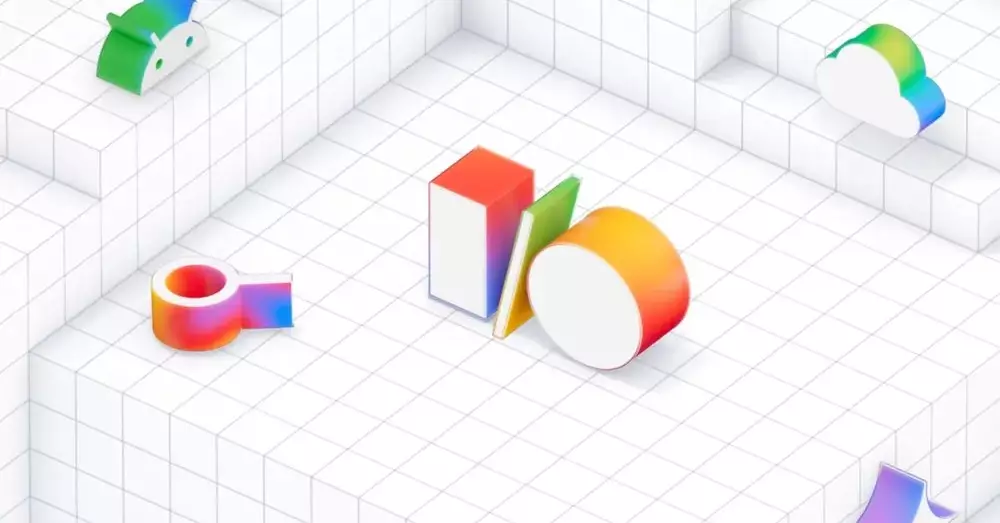As Google gears up for its annual I/O developer conference, the excitement surrounding the event is palpable, yet markedly different from years past. This year, the spotlight is firmly placed on Artificial Intelligence (AI) and Extended Reality (XR), reshaping our expectations for what we might see. Gone are the days when the I/O keynote showcased fresh Android OS revelations. Recent announcements have already laid bare any significant updates for the Android operating system, effectively sidelining it for the upcoming main stage. Instead, focus has pivoted towards AI—a move that illustrates Google’s recognition of the technology’s transformative power in reshaping user experiences across various devices.
Artificial Intelligence has transitioned from a buzzword to a core pillar for tech innovation, and Google’s commitment to AI, particularly its flagship project, Gemini, highlights this shift. As the company finds itself embroiled in an escalating race with rivals like OpenAI and Microsoft, the upcoming keynote serves not just as a glimpse of what’s to come, but as a strategic positioning within a competitive landscape. The anticipation is high, as AI applications increasingly permeate our daily lives, assisting in everything from mundane tasks to complex problem-solving.
Examining the Competition: A Context for Google’s AI Focus
A compelling juxtaposition exists when you consider the timing of Google I/O in relation to Microsoft’s Build developer event. If anything, this parallel highlights the intense competition driving innovation; companies are no longer merely focused on development but race to define the future of technology. The fast-paced evolution of AI technologies demands that Google not only keeps pace but strives to lead. The expectation is for updates that will elucidate new features integrated into the Gemini framework.
Moreover, the recent resurgence of interest in AI across the tech industry sets the stage for groundbreaking announcements. Google’s insistence on showcasing AI in the keynote demonstrates a strategic pivot. The company is not merely adopting trends; it is setting them. This significant emphasis on AI proposes that other areas, like hardware or traditional software updates, will take a backseat. Analysts speculate that a significant portion of the keynote will delve into how AI can alter user engagement, offering insights into future technological capabilities that once resided in the realm of fantasy.
Extended Reality: The Other Side of the Coin
While AI might dominate the spotlight, it’s essential to recognize that Extended Reality also features prominently in this year’s agenda. Notably, updates concerning Google’s XR OS hint at an evolving ecosystem that looks toward augmented and virtual reality. Similar to how AI has transformed user engagement, XR has the potential to revolutionize our interaction with devices, creating immersive experiences beyond traditional interfaces. The promise of Project Astra underscores this ambition, as Google seeks to leverage XR technologies to enrich day-to-day digital experiences.
Additionally, there’s anticipation regarding Google’s prototype smart glasses, which could symbolize a major leap forward in wearable technology. The partnership with Samsung and its Project Moohan brings an air of urgency to this endeavor. Time is of the essence, and Google must assert its presence in the XR space before competitors potentially overshadow their offerings.
Avoiding Distractions: A Focused Strategy for Growth
Historically, Google’s I/O events have been a platform for unveiling new hardware and software innovations, often accompanied by the launch of products such as Pixel phones and Nest technology. This year, however, the company appears to sidestep any significant distractions in favor of maintaining a laser focus on AI advancements. As much as there may be speculation surrounding new products or gadgets, Google’s strategy indicates a determination to prioritize AI narratives over hardware launches.
The potential for cutting-edge AI features and updates aimed at enhancing consumer technology means that the keynote could be substantial for developers and users alike. In a landscape where attention spans are fleeting, Google understands the importance of making a powerful impact. Attention to AI and XR specifics may ultimately offer a richer understanding of future user interactions, setting the bar high for the competition.
By committing to this formidable duo of AI and XR technologies, Google’s I/O 2023 stands poised not merely as a showcase but as a groundbreaking forecast of the digital landscape. The balance of ambition and practicality reveals a company that is not just reacting to trends but actively shaping the dialogue around technology and its potential impact on society.


Leave a Reply